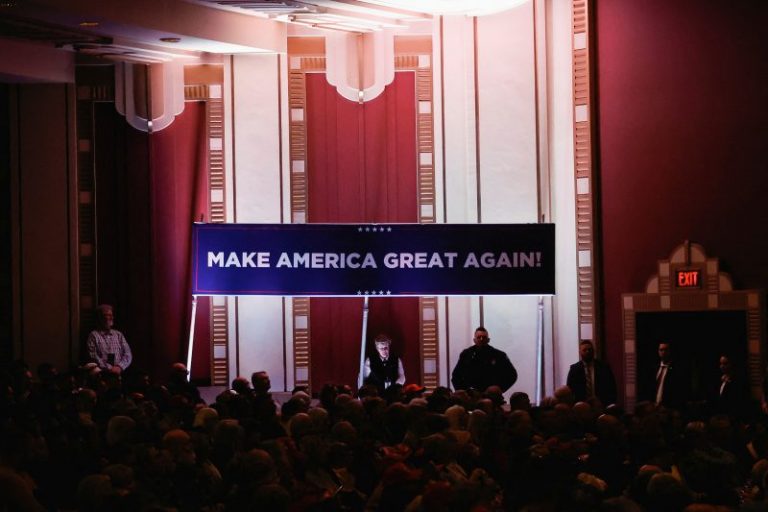In the 2020 election, older Americans were more likely to support Donald Trump than Joe Biden — but not by as wide a margin as you might think. Pew Research Center’s validated assessment of turnout in that election indicates that Trump won people ages 65 and older by about four points. That’s a slight advantage, at best.
One reason we associate Republican politics with older Americans is simply that younger Americans are so much more Democratic. In 2020, voters under the age of 30 preferred Biden by 24 points. Between the parties themselves, there’s a difference: A higher density of the GOP is older than is the case with Democrats. About a third of the Republican Party is 65 or older.
Why this divide by age? In part because of demographics. Older Americans are less likely to be Black, Hispanic or Asian than younger Americans, all groups that vote more heavily Democratic. In fact, the gap between older and younger voters in presidential voting overlaps with the election of Barack Obama in 2008, a moment in which the confluence of demography and politics was acutely obvious.
In the 2016 election, Trump leveraged concerns among older Republicans about the changing demography of the United States to his benefit. His slogan — make America great again — was not specifically about race, but it incorporated a sense that America had declined as it also was less disproportionately focused on the needs of White Americans.
New polling from CNN, conducted by SSRS, shows how this sense of decline continues to hold sway in the GOP — and continues to inform how Republican candidates and right-wing media appeal to Republican voters.
The poll is centered on gauging views of Republican primary voters (including independents) a year out from the 2024 nominating contest. But the pollsters included a number of questions centered on this idea of how America’s changing.
For example, most respondents said that America’s best days were behind us; that, you might say, America is no longer as great as it used to be. There’s not much difference in responses here, particularly when considering margins of error.
There’s an overwhelming sense among Republicans that the country’s values are eroding on issues of sexual orientation and gender identity. Here we see some differentiation by age, but, again, subtly.
It’s hard to answer the chicken-egg problem here. Hostility to changing views of homosexuality and transgender Americans is pervasive in right-wing media, but is that because it’s important to Republicans or do Republicans view it so negatively because of that media attention? Which came first, the Tucker Carlson monologue or the outrage?
Part of it, certainly, is that these subjects trigger an opposition rooted in religious arguments that efforts to leverage racial insecurity don’t. What’s more, the party has renewed chatter about better engaging non-White voters in its politics. Focusing on gay and trans people as a target means stoking a similar sense of discomfort but against a smaller population.
The most interesting question in the CNN poll, though, focused on views of American diversity. Here, the divide between younger and older Americans was clear: Younger Republican primary voters were more likely to see the increased diversity of the United States — “having an increasing number of people of many different races, ethnic groups, and nationalities in the U.S.,” as the question put it — as enriching American culture rather than as a threat.
Among Republican primary voters 65 and older, a majority said this increased diversity was a threat. Among those under 50, views ran more than 2 to 1 in the opposite direction.
Trump clearly hopes to stoke this sentiment. Here, the chicken-egg situation is more clear. Even in the 2016 primaries, concerns about perceived discrimination against Whites was a better predictor of support for Trump than economic status. Trump unquestionably leveraged this sense; it seems clear that he shares the concern. (Just this week, he declared that he was facing possible indictment in New York because the prosecuting D.A., a Black man, was “racist.”)
We can follow the logical chain here. If you think that America is being eroded by increased diversity, you see a less-diverse America as a better America. In that context, what does “making America great again” imply?
This was always part of the appeal. As an older White Republican, Trump has always been adept at capturing the concerns of that group, concerns that include turning back the clock on American culture and on the status of Whites. CNN’s new polling shows that, among older Republicans in particular, this remains a potent sentiment.

